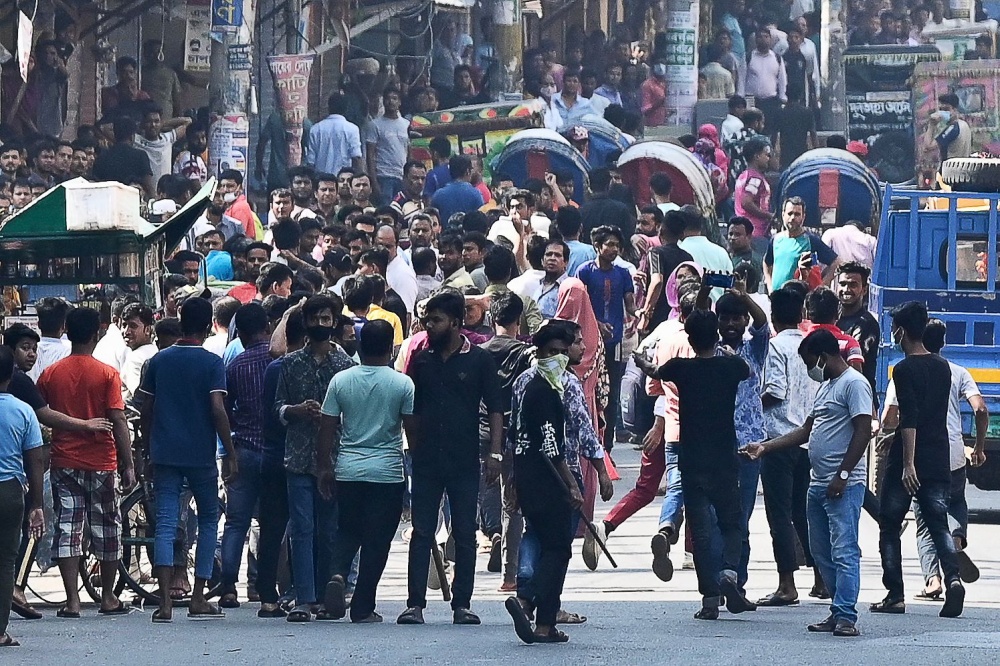“Production Halt by Levi’s and H&M Amid Escalating Labor Protests in Bangladesh”
Levi’s and H&M are among the global clothing brands facing production disruptions in Bangladesh due to worker protests demanding higher wages. The protests have led to the shutdown of hundreds of factories, impacting the country’s crucial garment industry.


Levi’s and H&M, two prominent global clothing brands, have suspended production in Bangladesh as labor protests escalate, with workers demanding a significant increase in their wages. The weeklong protests have led to the closure of at least 300 factories, resulting in two worker fatalities and numerous injuries.
Bangladesh’s garment industry comprises 3,500 factories, accounting for around 85% of the country’s annual exports, valued at $55 billion. These factories produce clothing for some of the world’s most recognized fashion brands.
Despite the industry’s significant contribution to the country’s economy, the conditions for many of the sector’s four million workers, predominantly women, are dire. Monthly wages often start at a meager 8,300 taka ($75).
The protests have taken a violent turn, with striking workers ransacking dozens of factories, while others have been voluntarily shuttered by factory owners to prevent vandalism. Some of the affected factories are major players in the industry, manufacturing clothing for prominent Western brands and retailers like Gap, Walmart, H&M, Zara, Inditex, Bestseller, Levi’s, Marks and Spencer, Primark, and Aldi.
While there has been no immediate confirmation from the brands regarding disruptions to their production in Bangladesh, manufacturers whose factories have suffered damage are reluctant to disclose the names of the brands they work with, fearing potential loss of orders.
The labor protests have led to the closure of hundreds of factories, with at least 300 confirmed by the police, while union leader Kalpona Akter’s organization has counted around 600 affected factories.
Protests persist, with thousands of garment workers taking to the streets in industrial areas around Dhaka, and some even attempting to block their colleagues from returning to work as two major manufacturers reopened their plants.
Despite an offer from the Bangladesh Garment Manufacturers and Exporters Association (BGMEA), representing factory owners, for a 25% wage increase, workers continue to demand a significant raise, far exceeding the proposed 23,000 taka ($209) monthly wage.
The protests have coincided with separate violent demonstrations by opposition parties, adding to the political unrest in the lead-up to elections scheduled for January.
The situation remains complex as both workers and factory owners seek resolution amidst the ongoing labor turmoil in Bangladesh’s vital garment industry.
Sources By Agencies







